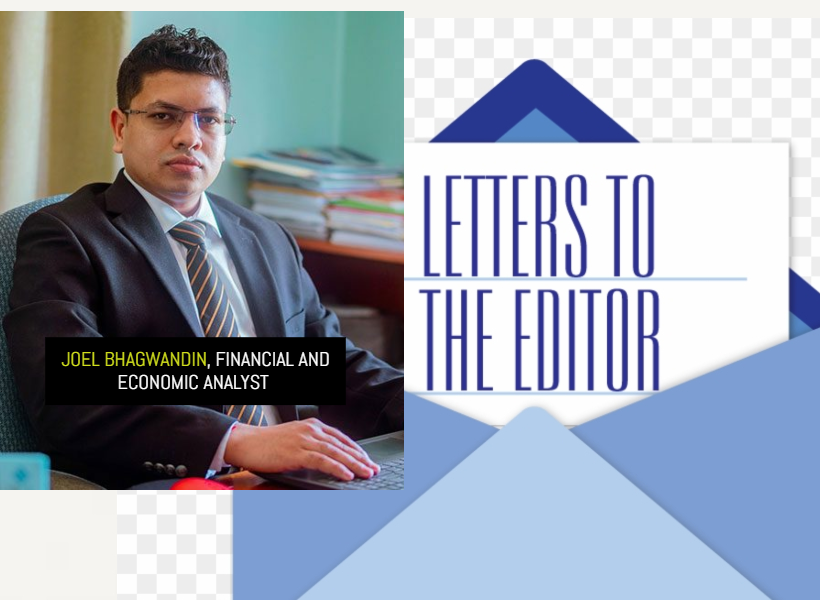Dear Editor,
In a letter published in sections of the media today (June 19th, 2024), Dr. C.K. Hunte contends that the “institutions in charge of gold are broken…and that we cannot wait on the Office of Foreign Assets Control (OFAC) of the US Department of the Treasury to tell us that millions of US dollars were not collected.”
Dr. Hunte appears to be highly uninformed—although I can understand his point of view about “broken institutions”, a concept and an established fact, which he knows more about than perhaps anyone else in the current regime. In this regard, Dr. Hunte had presided over the failure of GAIBANK in the late 1980s to early 1990s period. I had dealt with this issue in some amount of detail in April 2023. (See link here for ease of reference (https://www.guyanastandard.com/2023/04/30/professor-hunte-was-largely-responsible-for-gaibanks-failure/).. “smartCard-inline”)
However, I must also point out that Dr. Hunte has taken guidance from my advice to him that he should consult with the authoritative reports for data such as those on the Bank of Guyana website, which he did on this occasion.
The issue of the observably declining gold production has little or nothing to do with the institutions per se. Rather, this phenomenon is attributed to (i) gold smuggling as has been recently established and confirmed by the authorities, and (ii) a loss of appetite for investment in the sector coupled with the difficulty in attracting labour.
In the case of the latter, the authorities and stakeholders in the sector have confirmed that gold miners are finding it difficult to attract labour—largely because of the abundance of equally and/or more attractive opportunities on the coastland, thanks to the burgeoning oil and gas sector and the construction boom that is taking off.
That being established, coming back to the notion of “broken institutions”, in order to determine whether there is any merit to such claims, one would have to examine the operations of those institutions in accordance with their respective governing legislative/legal framework. For example, is the Gold Board operating in contravention of the Gold Board Act? Is the Guyana Geology and Mines Commission (GGMC) operating in contravention of the Guyana Geology and Mines Commission Act? Is the Guyana Revenue Authority (GRA) operating in contravention of the Guyana Revenue Authority Act? Has there been an examination of the audit reports for these institutions that would have highlighted major deficiencies, red flags and/or breaches that are alarming or major cause for concern?
Dr. Hunte, of course, did none of this type of work, thus rendering his claims baseless and unmeritorious. Accordingly, for Dr. Hunte to credibly make these sort of determinations even at a preliminary stage, he would have to perform far more robust work as opposed to his usual surface level type of analysis.
Since the revelation of the corruption report by the U.S authorities, the public domain has been engulfed by a plethora of “verbal diarrhoea” by an exceptional group of noisemakers on the matter. It is interesting to note that some of the proponents who are now self-anointed champions and advocates against tax evasion and corruption—have been embroiled in tax evasion controversies in the past, such as the likes of Kaieteur News publisher et.al (Guyana Chronicle, November 24, 2014).
It is important to note that money laundering is not a straightforward issue, it is in fact very complex. So not because it was the U.S that conducted the referenced investigation for over two years, it means that there is a grave failure in our system. Often times, money laundering involves cross border transactions. Hence, for countries like Guyana to successfully curb money laundering transactions and prosecute those involved in money laundering, it inevitably requires co-operation and collaboration with international partners and other jurisdictions. The Anti-Money Laundering (AML) laws provide for this. Moreover, it demands considerable investment in the resources and capabilities.
Furthermore, in the pre-2015 period, the PPP/C Government created two key institutions, namely, the Special Organized Crime Unit (SOCU) and the State Asset Recovery Agency (SARA). These institutions were created with the view of strengthening the overarching institutional framework in compliance with the AML requirements—to investigate, enforce and prosecute those involved in money laundering crimes. As such, these institutions were originally intended to work in tandem with the Financial Intelligence Unit (FIU).
Unfortunately, during its tenure (2015-2020), the APNU+AFC Government politicized these institutions, thereby effectively reversing the work of their predecessor. This means that we have suffered five-years of regression in so far as the country’s institutional capacity is concerned. Consequently, the Government now has to pick up the pieces, rebuild, reconstruct, and equip these very important organizations with the requisite tools moving forward.
Finally, for those who are comparing the U.S’ investigative capacity for money laundering crimes to that of Guyana’s, it is by far an unfair and unintelligible comparison. The U.S is a country whose resources and capabilities are 200 years advanced in contrast to ours. Therefore, what is of utmost importance that seems to have evaded the intellectual wisdom of some commentators, is that Guyana needs to deepen its co-operation with the U.S, seek out their support in this regard to continue developing our capacity and capabilities, which is precisely what the Government is pursuing—not only with the U.S but other international partners.
Sincerely,
Joel Bhagwandin













